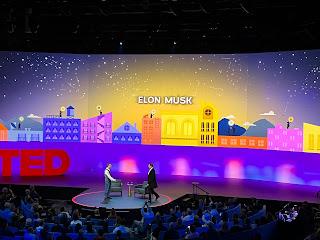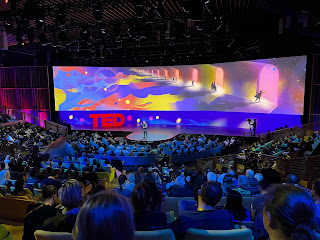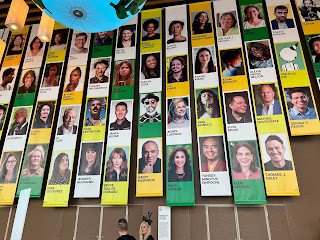Yesterday, David A. French wrote an article titled This July Fourth, Meet Three Americas: The red, the blue, and the tired. His basic premise is that everyone wants to talk about the Right and the Left and the evils of one side or the other. He also thinks, however, that there is a third America, the “exhausted majority” who are tired of the polarization of America. His final paragraph reads, “This July Fourth, I’m both proud to be an American and convinced that our best days can still lie ahead of us. But not if we’re too tired to engage. The exhausted majority has to get energetic, even if only for a time, to rescue America from the friends, families, and neighbors who are tearing it apart.”
Yesterday I spent visiting places I had lived, the church I went to and was married at (as had been my parents, grandparents, and great grandparents), schools I had attended, and the gravesite where my parents, grandparents, and generations before were buried. Things had changed, but most things seemed as they always had. Everything seemed small and a bit run down.
Milltown is, however, very big on its 4th of July celebrations. I walked most of the milelong parade route and I could feel the building excitement. The street was lined with all manner of folding chairs reserving spots. People were setting up tents and preparing food in their yards. Everyone smiled and said “Happy 4th of July!” I joked to one person setting up food that I would come back for something to eat and she responded, “Please do!” and it felt genuine. The friendliness felt like the town I remembered.
The Korean pastor was setting up chairs in front of the
Methodist church I went to. There were a group of African-Americans with loud
music playing from their front porch. Some people near where I sat to watch the parade included a Puerto
Rican and a Dominican. I heard a few languages being spoken that I did not
recognize. The welcome diversity did not feel like the town I remembered. Regardless,
pretty much everyone was wearing red, white, and blue and thoroughly enjoying
themselves.
I ran into my childhood, next-door neighbors from Blueberry Drive (yes, that was the name of the street). Bonnie and Kathy invited me to sit with them for the parade. The parade lasted over an hour and a half. It included a myriad of fire trucks, ambulances, sports cars, and Harley-Davidsons all making lots of noise and throwing out candy. A kid near me was crying because of all of the noise. I gave him some of the candy I had caught and he was happier. (I also ate plenty of it myself!)
There was a wide variety of music in the parade including drums
and bagpipes, mariachis, Latin/jazz fusion, a drumline, an old guy singing Blue
Suede Shoes, and others I’ve forgotten. There were boy scouts, girl scouts,
dancers, and plenty more. Amazingly, I did not find myself bored and frequently
realized I was smiling for no particular reason.
The day has given me hope for America. Like my small
hometown, much has changed over the last 50 years, though much remains the same.
Our country has plenty of work to do, but it has matured and continues to do
so.
May God bless America!














